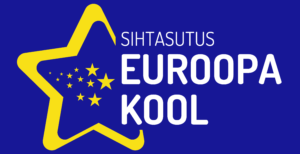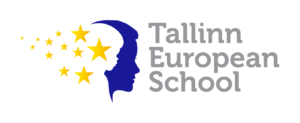Meet our alumni, Subhra Dash, who graduated from TES in 2022. Currently, she is pursuing a BA in ESCP Business School. In an exclusive interview with Mr. Stefan Muennighoff, Subhra Dash shares insights into her post-graduation life, daily routine, and the habits cultivated during her time at TES.
Good morning, Subhra. Tell us a little bit about who you are and what has happened since you graduated from TES.
Good morning! I am Subhra. I come from India but I moved to Estonia and joined TES in P4, so most of my schooling was done there. After TES, I had the wonderful opportunity to study BSc in Management at ESCP Business School – the school originated in France, however, it has 6 campuses in 6 different countries. The program is as such that students are required to change campus each year. Thus, I finished my first year in the diverse city of London, currently doing my second year in the historical city of Paris and will graduate from the beautiful city of Berlin in 2025.
Share one specific example when you had to think about your experience at TES and how this relates to what you are doing right now.
Overall, through multiple experiences, TES provides you with soft skills that are applicable in everyday life and even more as a business student. I can’t pinpoint a specific experience on its own, but the diverse environment and the small interactions among my classmates and teachers tremendously contributed towards shaping me into the person I am today.
Tell us a little bit about your (daily) university life and routine?
At ESCP, we have a hybrid model. Therefore, first we have pre-recorded lectures to watch where the concepts and theories are explained. This is followed up by an inperson session where any questions or doubts are addressed, and more practical examples are given. On top of that, we have multiple group projects in parallel. Lastly, as I am part of a society/association, it is important to find time to work on that and attend meetings and so on as well.
Overall, a typical day would consist of preparing for future classes through the prerecorded lectures, attending some in-person seminars at the building and group meetings, followed up by some society work and lastly, ending with a nice dinner with some friends in order to relax after a long day or week. The schedules differ everyday where some days I have only one or two classes while other days I might have more so it is very important to organize the time well for other activities.
What are your plans after graduating from your university?
I prefer to gain some experience after my Bachelors before heading to pursue a Master. Therefore, I am still exploring different industries – either through the very courses I have at ESCP or through attending events with representatives from different companies to gain further insights. I am yet to fully decide on a specific direction but I am some sectors that have caught my interest.
In hindsight, how did TES prepare you for life after TES? What was your biggest surprise?
An extremely important skill TES provides its students with is that of openness to different cultures and different mindsets. Not only does this come through the diverse student body, but even through the teachers. As a previous TES student myself, very early in life I got an exposure that a lot of people don’t get in many different schools. Different nationalities, languages, perspectives, upbringings, teaching methods and so on. Unconsciously or consciously, it teaches you multiple skills and it is an enriching experience. I might have only grown up in 2 countries (India and Estonia), however I can say I have the views and perspectives of dozens of different countries – only because I had the opportunity to talk with the people from there. This aspect came as a surprise because I didn’t realize this was one of my strengths until I entered university. It really broadens your vision.
Other ways TES prepared me was through the range of subjects I could study. As a business student, not only is it important to learn industry-specific subjects such as accounting and finance, but it is equally important to understand other subjects such as law, psychology, history, international relations and the list goes on. Therefore, as TES allowed me to continue with multiple subjects, ranging from history to chemistry to mathematics to economics, this not only helped me in preparing for my professional life but also my everyday life.
If you were in S6 now, what would you have done differently? What is your advice to current (senior) secondary students? And to teachers and the school in general?
If I was in S6 now, one thing I would have done differently is to indulge more in nonacademic activities and gain further exposure of the area I am interested in pursuing. To further explain my point, it is very important to do activities outside of studying. Academics is very important without a doubt and indeed plays a crucial role while applying to university, so it is important to study and get good grades. However, academic is not all – neither for you, nor for the university you are applying to. I did indeed invest time in some extracurricular activities such as playing the piano, however I believe I had a very limited vision of the number of activities I could have done. A typical thinking might be that Tallinn is a fairly small city and therefore there are less options, especially if you are a non-Estonian speaker. However, if there is one good thing out of the 2 years of lockdown, it is that a city is no longer a boundary. There are multiple clubs online. Now you can learn piano online, join dancing classes, volunteer from a distance, join public speaking clubs in different countries, attend webinars for free, and the list goes on. You can sit in Estonia while joining a club in your home country.
There are so many resources and options that I had no idea about and from which I could have benefitted from long ago. My advice therefore for the current secondary students is to really step foot outside of the school and explore your options. For any interest, there is definitely something that can be done. Even volunteering at an NGO is an important experience. If you support a cause, fight for it. If you love music, learn an instrument. If you like basketball, join a team. Not only do these give you incredible experiences, but they also provide transferable skills that are very important no matter which domain you pursue in the future and equally shape you as a person. However, on a side note, academics is also crucial, even those subjects that don’t seem relevant to your future studies. Therefore, don’t neglect them but rather learn to balance time among different activities – another important skill!
An additional advice for students would be to really start thinking of the future soon and of potential universities. The earlier you decide or at least draft a list of potential universities, the longer you have to find more info about them and figure out if indeed it is the right fit for you. So, talk to the admissions team, to representatives, join webinars, if they are present at the career fair then attend it and lastly, the most important thing is to contact student ambassadors from the university. What better way to learn about a university and its course than a person who is doing the said course at the very university? So, make sure to reach out to them and I assure you, everyone is more than happy to provide you with further insights.
As for the teachers, I believe we have wonderful teachers who are really looking forward to the students’ success. The teachers really create a very friendly environment where students feel free to ask anything. Another piece of advice to the students: openly talk to the teachers! Some conversions have led to incredible discoveries and also, these are people who have a lot of experience in different industries and countries, so they can really provide the necessary insights. As for advice for the teachers and the school, it would be perhaps to provide more exposure in terms of careers. It would be great to have universities from different countries speak on career day or have an alumni page with information regarding what they are pursuing, as well as contacts in case current students would like to reach out to them for further information.
How would you like to see TES develop in the next 10 years?
In 10 years, it would be great to see TES expand with more students, more subject choices and an incredible alumni network. However, I hope that no matter how much TES grows, it should still have that authenticity and essence that makes it as unique as it is.
Anything else you would like to add?
I would just like to thank all the people I met at TES, especially the teachers. They foster a great environment and truly support you no matter what so I don’t think I can thank them enough. So, all I can say is a big thank you to TES and its members for laying the foundations of who I am today!
Thank you very much for your time. Hope to see you next Spring at the TES 10 year anniversary.



